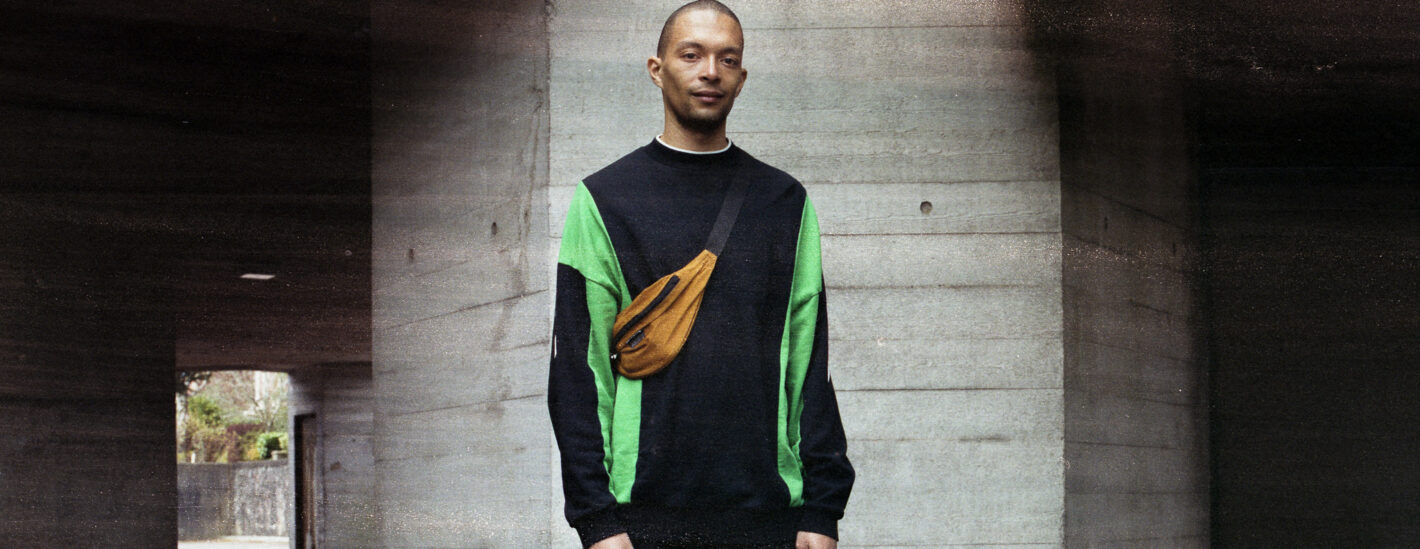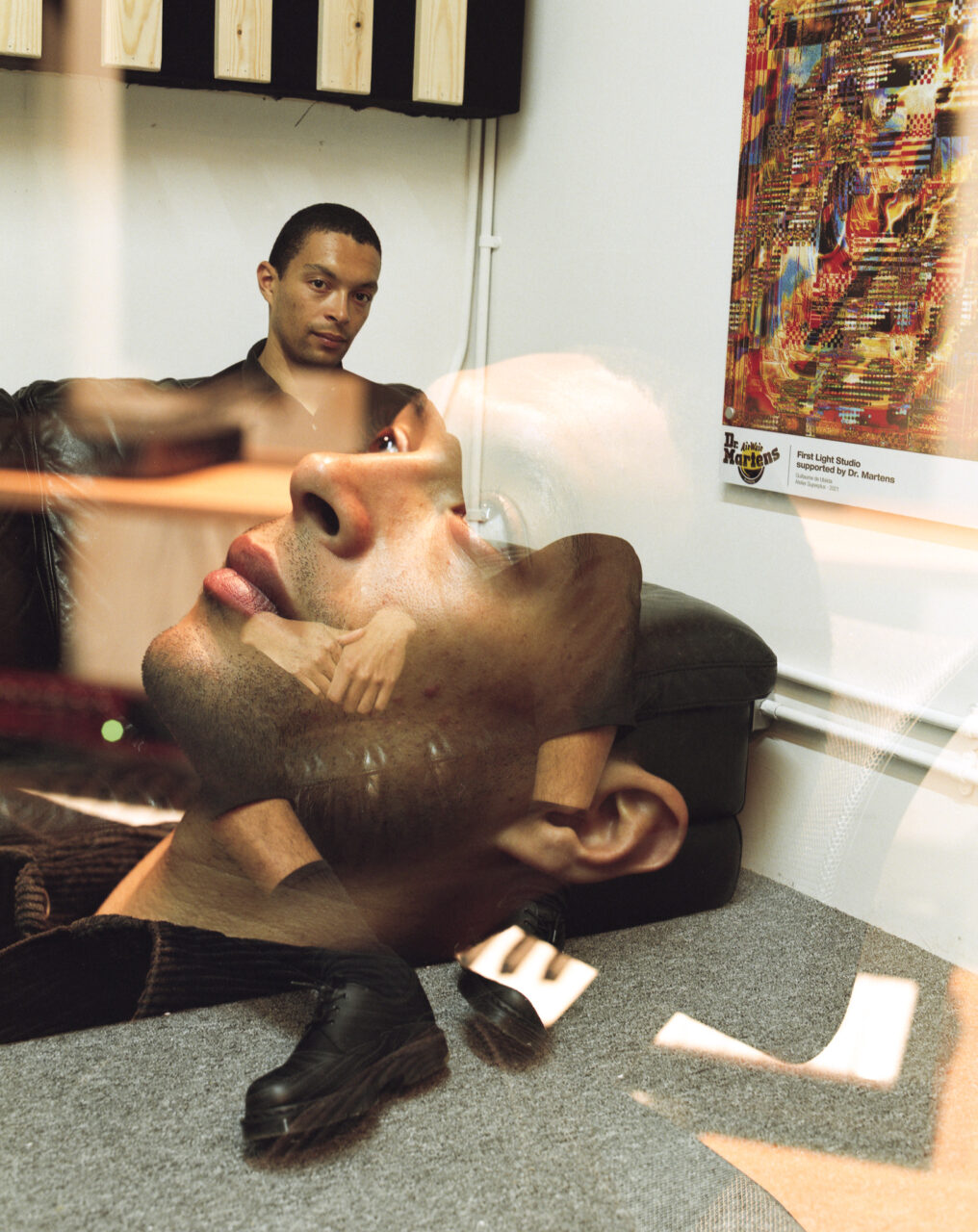Artist Interview: Batu
 By Resonate | May 12, 2023
By Resonate | May 12, 2023
Words by Tom Pittard
“I try to leave a lot of the things I do to my subconscious; I don’t particularly have a good grasp on what I’m doing most of the time, but I trust myself”. This comforting statement comes from eminent DJ and producer Omar McCutcheon, otherwise known as Batu. Giving us an insight into the mind of an artist at the forefront of electronic music, Batu’s work continues to show glimpses into the future of UK dance music, particularly his home city, Bristol. The relationship between Batu and Bristol is something of a love story, the artist always looking to push the boundaries within the realm of production and DJing and to take UK dance music into a new, experimental sphere. Bristol, of course, is a city that welcomes this weirdness with open arms.
In between a schedule of playing at London’s FOLD alongside techno guru DJ Nobu and sharing his wisdom with BIMM Bristol students in a series of lectures, I caught up with Batu to discuss his connections to Bristol’s growing music culture, as well as his creative projects, past and present.
Batu initially set the benchmark with the striking release Cardinal / Domino Theory EP – released through his own imprint Timedance, a record label he created in 2015 and has been running ever since. The label has played a significant part in my and many others’ musical journey into Bristol’s vibrant electronic music scene. “There were some ideas that were clear in the beginning. I knew I wanted the music to be this kind of hybrid form, and there needed to be a sense of different ideas and sounds being formed together, stuff that is very clearly one thing probably wouldn’t fit the label. I always knew there would be this techno-but-not-techno idea, but there’s no way you can predict these things”.
“Sometimes you can surprise yourself and end up in a place you didn’t think you were going to”
He states the importance of openness and natural reaction in the running of a label. “Everyone I know who runs a label didn’t have any specific guidelines when they started. You don’t know how it’s going to go, so it’s important to be open because if there’s too rigid a philosophy, you’ll limit yourself and get stuck in a corner”. Timedance is home to a number of artists operating in their own space. Lurka, Bruce, and Giant Swan, to name a few, have provided Timedance with unconventional music that comes with its own hard-to-pin-down style.
Batu continued to blur the lines with his debut album, Opal. Born out of the pandemic, Batu describes Opal as a “different phase.” Whilst the album does feature his signature-sounding, club-ready tunes, he perfectly pairs this with his newfound sense of freedom and joy. “I feel like I’m going into the studio and casting a wider net and seeing what comes back, I was always working to refine something and hone in on this specific sound. I don’t feel like that anymore. I’m really enjoying making music at the moment, more than I ever have before, it just feels really good”.
Each song on Opal is rich with a texture that bounces between off-kilter percussion. Batu is known for his diverse and immersive musical textures, and they feature heavily on tracks such as Spectral Hearts, to Even Here. I’d like to say Opal is the culmination of the singles and EPs that came before it, but it’s not, it shows new direction and new thinking from an artist whose faith in his own abilities shines through in a tone-setting debut album.

As a touring artist and DJ, Batu has come to see the inner workings of festivals around the world and has used this knowledge to create En Masse, a festival originally planned as a camping festival in Wales and eventually morphing into a multi-venue festival here in Bristol. “The idea came from seeing how powerful festival programming can be and how much weight that adds to people’s experience. For a while now, big festivals pack out a line up as much as they can because it’s the main way to sell as many tickets as possible, and I can see the harsh reality of how festivals work financially”.
En Masse looks to create a new experience for festival-goers and the staff that run them, introducing underground artists to a wider audience and creating a space for Bristol’s community to appreciate the creativity that comes out of their city. ‘I like the idea of the festival being based around trust, in the way that people interact with the festival as a whole. The shared experience and narrative that these people get at En Masse is something that I don’t see often at other festivals, so bringing all these creatives together forms a sense of community that makes the festival what it is, I mean, it’s called En Masse for a reason.
He carries over his idea of intuition and trust to create a festival that truly showcases what Bristol has to offer. “It felt like there was this space opening in Bristol since COVID. The city has such diversity when it comes to music and creativity that it felt right to bring these people together”. He continues. “Once we started working on En Masse it immediately felt like we had a better sense of direction, and the energy from the people involved just inspired us to keep going”. En Masse has been running for 2 years and has already solidified itself as a staple in Bristol’s music scene. “It’s almost overwhelming thinking about how much we could do with En Masse, I think if we had an open chequebook, we’d have no issues finding the talent because Bristol has this endless pit of creativity that we’ve only scratched the surface of”.
“I’m very conscious that it feels like no one has any time to make art”
Spending his time at university making the most of the free studio time he had, Batu sees the importance of studio and equipment availability for artists, with time and money being constant factors that prevent this, it’s hard to see a future where these opportunities are readily available. The chance to combat this problem came in the form of an exciting project called First Light Studio, which saw a collaboration between Batu and Dr Martens to bring a free studio space to the Trinity Centre in Bristol. “First Light was an exciting opportunity for me, it’s something I’ve been thinking about for a while, so I jumped at the chance. Having a space where people can experiment with their sound freely is a beneficial thing”.
Projects like First Light don’t just create accessibility for artists, they set a precedent for the future of the music industry. “If you go back to the early days of grime, it was a genre that was heavily attached to publicly funded youth centres where artists could experiment and immerse themselves into that culture. It feels like there’s very little left of this sort of thing in the UK, which is a shame because so many opportunities are being taken away”. The studio is a chance to level the playing field for producers. In an industry where many are limited, Batu is opening the doors for all. “I’m very conscious that it feels like no one has any time to make art, so I’m hoping First Light can at least give people a chance to develop in their practice”.
Batu’s love for Bristol’s creative community has brought new energy to the city, his various musical projects all aim to bring people together and allow new artists to flex their experimental side. His technical brilliance as a DJ and producer is displayed through a catalogue of music that sits in its own world and a reputation as a DJ who can tap into any genre, with an approach to all his creative practices that he summed up perfectly: “it’s all at its best when it’s intuitive”.
Whether it’s his mission or not, Batu is changing the preconceived ideas of dance music, and his outlook is inspiring to everyone in this industry. His message of trusting yourself, your intuition, and the people around you is something we can all learn from.
To find more Artist Interviews, click here.